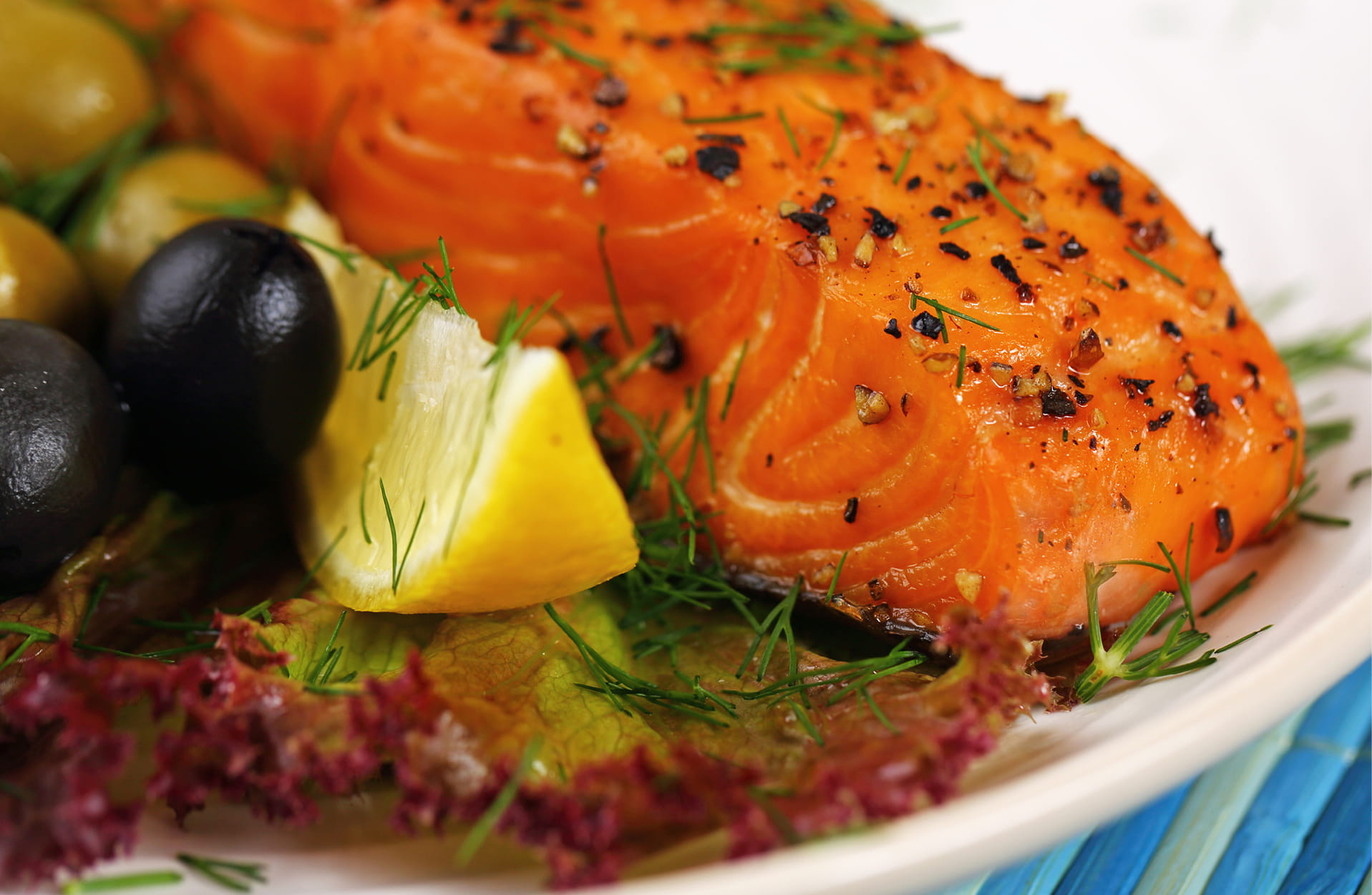Nature’s superhero: The benefits of vitamin C
It’s more than just a cold fighter. Learn how to get more vitamin C in your diet.
This powerful antioxidant boosts your immune system. But that’s not all it does.
What does vitamin C do?
Also called ascorbic acid, vitamin C is an essential nutrient. It helps form cartilage, blood vessels, muscles and collagen in your skin and bones.
Unlike other vitamins that our bodies produce naturally, vitamin C levels need to be replenished each day. That means we need to get it through our diet.
So how much vitamin C do we need per day? Probably less than you’d think. “Males need 90 milligrams (mg) each day,” says Kevin Ly, MD, a family medicine doctor at Geisinger’s Elysburg clinic. “And females need 75 mg daily.”
If you’re pregnant, you need 85 mg of vitamin C daily. And if you smoke, aim for an extra 30 mg each day.
Health benefits of vitamin C
Vitamin C helps nearly every system in your body. If you’re not getting enough, you may bruise easily or have dry skin. “Vitamin C deficiency can also lead to fatigue and mood changes,” Dr. Ly says.
Getting your recommended dose each day:
Aids in healing wounds
Vitamin C promotes the formation of collagen and elastin. These connective tissues restore tissue, helping the formation of new, healthy skin cells.
Assists with iron absorption
Eating more vitamin C-rich foods helps your body retain more iron. The nutrient binds to the iron from plant sources like whole grains and fruit and vegetables. To give yourself a boost, consider eating an orange with your oatmeal or whole grain toast in the morning.
Keeps your eyes healthy
Besides helping form the collagen that makes up your eyes, vitamin C helps with overall eye health. It keeps inflammation low and helps balance the levels of oxygen inside your eye, which can lower your risk of cataracts.
Protects you from free radicals
Vitamin C is a powerful antioxidant. Like other antioxidants, it lessens your body’s production of free radicals, which destroy healthy cells.
Supports brain health
Another reason to think about getting more vitamin C in your diet: improved brain health. By improving blood flow to the brain, it banishes brain fog — so you feel sharper and clearer.
Reduces stress levels
Want less stress in your life? A healthy dose of this vitamin can lower your stress level. Getting enough vitamin C helps control cortisol levels, keeping stress at bay.
Lowers stroke risk
Adding vitamin C to your diet can help lower blood pressure. In turn, that can reduce your risk of having a stroke.
Need more vitamin C? Head to the kitchen
Getting the right amount of vitamin C is easy. With a balanced diet, you can meet your daily requirement. Consider piling these foods on your plate:
Citrus fruit
The citrus fruits you find in grocery stores — oranges, tangerines, lemons, limes and grapefruit — are good sources of this vitamin. Juice delivers the goods, too. “A small glass of orange or grapefruit juice gives you the recommended amount you need for the day,” says Dr. Ly.
Strawberries
Strawberries aren’t just for dessert. These tasty berries are versatile. Slice them into a salad, blend them into a smoothie, make them into salsa, add them to your yogurt or just eat a few plain.
Bell peppers
This colorful crop makes a great addition to salads, omelets or stir fries. Or, if you’re looking for a crunchy snack, try them raw with hummus or dip.
Kiwi
Think oranges have the highest amount of vitamin C? Think again. One kiwi has 64 milligrams of the nutrient, compared to an orange’s 51 milligrams. Add a few of these fuzzy fruits for a tangy vitamin boost on your next shopping trip.
Tomatoes
Whether you enjoy them raw, sun dried or cooked into pasta sauce, tomatoes are a good source of vitamin C.
Cruciferous vegetables
Fruits aren’t the only source of this vitamin. You’ll also find it in broccoli, cauliflower and Brussels sprouts. When planning your next meal, don’t forget to include one of them as a side dish.
Potatoes
Spud lovers, rejoice. These tasty tubers are an excellent source of vitamin C. One medium baked potato contains about 20 mg, or about 25% of what you need in a day. For an added nutrient boost, top your potato with a spoonful of salsa.
Not a big fan of fruits or veggies by themselves? No problem. Try a soup or smoothie instead to reap all the benefits vitamin C has to offer.
If you’re not sure what you need nutrient-wise, ask for advice. “Your healthcare provider can point you in the right direction,” says Dr. Ly. They’ll work with you to find the right dietary tweaks to help you live your healthiest life.
Next steps:
Explore the benefits of eating more fruit and vegetables
Fiber: Are you eating enough?
Make a primary care appointment





